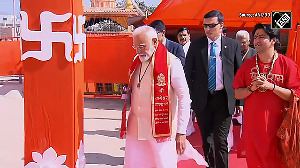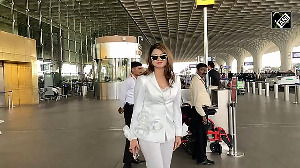He said the KAC has pledged to contribute, in whatever form possible, to the rehabilitation effort of the affected families.
Dismayed at the photographs of the aftermath of the attacks, Dr Fai hoped that the Indian authorities will pursue all reasonable efforts to investigate, apprehend, and punish those who are guilty of committing these reprehensible crimes.
The KAC board, at an extraordinary meeting, pledged to oppose those who would resort to violence in order to pursue whatever ends they claimed. "Targeted victimisation of innocents has no justification and encourages retribution from any and all quarters," Dr Fai said. "To that end, the KAC hopes that all India's citizenry allows for a cooling period and hopes that communal harmony prevails during this troubling time in India's history."
He did not think the terror attacks would lead to an armed conflict between India and Pakistan.
"The Kashmiri people want both countries to continue the peace process started during the time of Prime Minister Vajpayee. There may be elements in New Delhi, Islamabad and Kashmir, who want to create trouble between both countries. But peace is the best thing for all," he said.
Dr Fai noted a major change in Kashmir in the last few months. "People have begun to come out against militancy. Hundreds of peace marches were organised in Kashmir in recent months. One march attracted a million people." He said he watched the Pakistan foreign minister's press briefing in New Delhi after the terror attacks. The tone of the speech was for continuing the peace process, he noted.
India and Pakistan should understand the sentiments of the Kashmiri people, he said. More than fifty percent of the people who attended the peace rallies were young men. They have faith in negotiations and the peace process. Pushing them to a corner, Dr Fai said, will not be a good thing.






 © 2025
© 2025